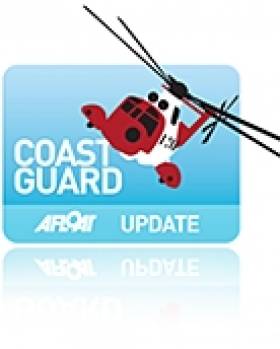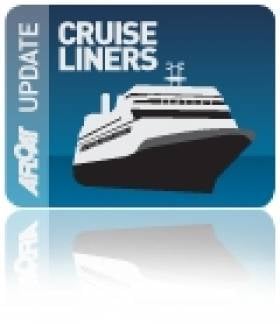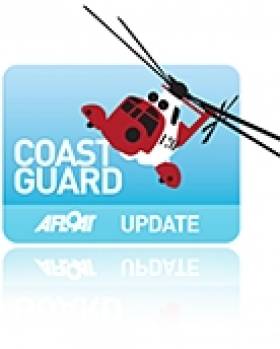Displaying items by tag: Costa Concordia
Unified EU Coastguard On The Cards
#COASTGUARD - Greater co-operation between Europe's coastguard organisations is inevitable, according to the Irish Coast Guard director.
Chris Reynolds was speaking at Search and Rescue 2012, the EU Heads of Coastguard conference in Dublin last Thursday, at which he outlined a feasibility study being conducted by the European Commission on a standardised coastguard service across Europe.
As Shephard Media reports, Reynolds admitted that some challenges stood in front of any effective change in the sector, noting that SAR policy at member state level is often spread across many departments.
But the Costa Condordia disaster off the Italian coast recently may focus governments to develop a "sense of urgency" on the issue, he said.
In the keynote address at the conference, Italian coastguard chief Giuseppe Troina said it was fortunate that the death toll in that incident had not been much greater, emphasising that more than 4,000 people survived the cruise ship's sinking.
The Irish Times has more on the story HERE.
Cruise Lines Mandate Pre-Departure Safety Briefing for Passengers
#CRUISE LINERS - Cruise ship passengers will be given a safety briefing before leaving port under new industry rules drawn up in the wake of the Costa Concordia incident, The Guardian reports.
Three organisations representing international cruise lines have agreed that the 'muster drill' - which is currently conducted within 24 hours of setting sail as per maritime law - must now be held before departure from any port.
The move comes after reports that hundreds of passengers who had boarded the stricken vessel hours before it ran aground off the western Italian coast had not yet had any kind of safety instruction.
Muster drills, whereby passengers are shown how to put on lifejackets and directed to exits, are already common practice in the industry.
As previously reported on Afloat.ie, an Irish couple were among thousands rescued from the Costa Concordia after the incident on Friday 13 January. At least 32 people are believed to have died in the disaster, with 15 recorded passengers still missing.
The Guardian has more on the story HERE.
Italian Coastguard to Deliver Keynote at Dublin Conference
#COASTGUARD - Representaives of Italy's coastguard will give an account of its handling of the Costa Concordia tragedy at an international conference in Dublin next month, The Irish Times reports.
The Italian coastguard has been invited to deliver the keynote address at Search and Rescue 2012, which is being hosted in Ireland for the first time.
It is expected that this address will include a detailed account of the sinking of the cruise liner Costa Concordia last month.
At least 17 people have died and 12 are still missing after the ship ran aground on the western Italian coast. One Irish couple were among the thousands rescued from the stricken vessel.
Meanwhile, attendees at the conference - which is being hosted in the year of Ireland's charing of the EU coastguard network - will also witness demonstrations of the Irish Coast Guard's rescue helicopter fleet at Weston Airport in Leixlip.
As previously reported on Afloat.ie, Irish Coast Guard director Chris Reynolds has been charged with preparing the grounds for a permanent secretariat to be run by EU coastguard officers.
Irish Couple Speak of 'Titanic' Experience on Capsized Cruise Liner
#NEWS UPDATE - The Irish couple rescued from the stricken cruise liner off the Italian coast have spoken of their joy to be back home safe and sound.
Séamus Moore (52) and his wife Carol (50) from Clonmel were greeted by their three children at Dublin Airport yesterday, just two days after the Costa Concordia struck a sandbank and capsized off Tuscany.
“It was a difficult experience but at the end of the day it worked out very well for most people," Carol told The Irish Times. "It’s really, really a relief to be home.”
Commenting on the events of Friday night, Séamus likened their experiences on the sinking cruise ship to the film Titanic.
“When we were sitting on the side of the ship I said to her ‘now we know what Leonardo DiCaprio and Kate Winslett felt like’ and she said ‘well at least Kate lived’."
As the boat listed, it also struck Séamus that while "everything was crashing one way, then the next, the one thing I did notice is that the piano player kept playing."
The couple were removed from the ship by lifeboat in the early hours of Saturday and looked after by the staff at the Irish Embassy in Rome before their return.
They were among some 4,000 passengers on the cruise ship, most of whom were rescued within hours of the incident. Six people are confirmed dead following the disaster, with more than 60 injured and 16 people still missing.
The captain of the 114,500-tonne vessel was arrested on Saturday accused of manslaughter and of abandoning ship before all passengers and crew had been evaculated.
The Irish Times has more on the story HERE.
Irish Couple Among the Rescued from Capsized Cruise Ship in Italy
#NEWS UPDATE - An Irish couple were among those rescued from the cruise ship that ran aground off the coast of Italy on Friday night, the Irish Examiner reports.
Three people are believed to have died, while 14 others were injured, after the Costa Concordia struck a sandbank and capsized off the Tuscan coastline in the Tyrrhenian Sea.
The vessel was carrying more than 4,000 passengers at the time, many of whom jumped into the water as panic set in after the ship hit a rock that tore a 150ft gash in the hull.
As of Saturday three bodies had been recovered from the sea, with at least three more feared drowned.
The Department of Foreign Affairs confirmed that an Irish couple on board are safe and well, and are receiving consular assistance. Many survivors are taking refuge on the small island of Giglio close to the incident.
The Irish Examiner has more on the story HERE.




























































